The views expressed in our content reflect individual perspectives and do not represent the authoritative views of the Baha'i Faith.
When I worked at UCLA I had a third floor office with big windows in a building overlooking Westwood Boulevard. Looking west and south, those windows afforded me a beautiful view of Westwood Village, which has the big trees and the quaint old buildings you’d expect in a university’s sylvan campus setting.
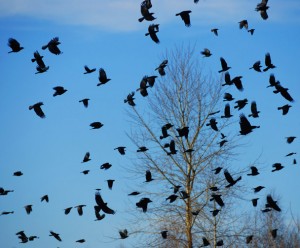
I admit it–sometimes at work I’d catch myself gazing out those windows as life moved by outside. One day while a co-worker of mine and I met she said “Wow! Look at that beautiful hawk!” I turned around and there, outside my window, we saw a big red-tailed hawk circling high in the sky above a murder of crows. (That’s the name for a flock of crows—a “murder.” I promise I didn’t make that up.)
Anyway, as we watched all these graceful birds in flight I realized I could hear the murder cawing madly, obviously not happy about the threatening presence of the hawk. In a second we found out why—as we watched the hawk stooped over into a high-speed dive, falling like a bullet, and slammed hard into one of the crows. As the crow fell, the hawk rapidly recovered and hooked its talons into its stunned victim in mid-air, a dazzling aerial feat. The other crows went nuts, screaming at the hawk and strafing it.
But the hawk ignored them, landed on a rooftop and began to literally eat crow. My co-worker turned away, now completely grossed out. “Oh, that’s horrible!” she said. “Wait a minute,” I asked her, “a minute ago you called that hawk beautiful–what changed?”
We talked about it for a while, reflecting on the cruelty of the natural world, and agreed that the old phrase “Nature, red in tooth and claw” definitely applied in this situation. Then we got curious and wondered where we both had heard that familiar saying, so I looked it up. Turns out the great poet Alfred Lord Tennyson, heavily challenged in his faith in God by the theory of evolution, started putting his feelings about the subject into a poem called The Way of the Soul. After working on it for years, Tennyson finally published it in 1849, under the title In Memoriam A.H.H., dedicated to his recently-departed friend Arthur Henry Hallam. The poem contains these immortal lines:
I hold it true, whate’er befall;
I feel it when I sorrow most;
’Tis better to have loved and lost
Than never to have loved at all.
Who trusted God was love indeed
And love Creation’s final law
Tho’ Nature, red in tooth and claw
With ravine, shriek’d against his creed
Are God and Nature then at strife,
That Nature lends such evil dreams?
So careful of the type she seems,
So careless of the single life;
That I, considering everywhere
Her secret meaning in her deeds,
And finding that of fifty seeds
She often brings but one to bear,
I falter where I firmly trod,
And falling with my weight of cares
Upon the great world’s altar-stairs
That slope thro’ darkness up to God,
I stretch lame hands of faith, and grope,
And gather dust and chaff, and call
To what I feel is Lord of all,
And faintly trust the larger hope.
Tennyson’s beautiful poem, about the search for hope after great loss, touches not just on human mortality but on the death of spiritual belief in the light of science. The poet told people the concept of evolution had heavily influenced his work–he had read about it in an anonymous book published in 1844, called Vestiges of the Natural History of Creation. Preceding Darwin’s theory by 15 years, the book caused enormous controversy–because it sharply contrasted the newly-emerging scientific understanding of a harsh, impersonal and bloody natural world with society’s prevailing belief in God, a literal interpretation of the Bible, and an unquestioning acceptance of the revealed truths of religion.
During that same period, the Baha’i Faith arrived in the world. It brought a new kind of religious belief to humanity—one that emphasized the independent investigation of the truth along with a full acceptance of reason, logic and the complete harmony of faith and science.
So how do the Baha’i teachings deal with this question of evolution and God? Simply, Baha’is believe that the natural world, red in tooth and claw, evolves just as science says it does—but that human beings, who have both animal and spiritual characteristics, can transcend the struggle for existence:
In the world of nature there are aggression, bloodthirstiness, oppression, struggle for existence, rapacity. These qualities are the natural laws of nature. Just as these animals are captives of nature, similarly man is conquered, subjugated and humbled by nature. For example, anger gets the better of man, ferocity prevails upon him, and he becomes the subject of the lower passions. What are all these? They are no other than the mandates of the world of nature.
Only those persons who are in reality believers in God, who have witnessed the Signs of God, are attracted to the Kingdom of God and turned their faces toward God–they and they alone are freed from the bloody claws of nature. Whereas formerly they were the subjects of nature, now they become the rulers. Whereas before they were vanquished by nature, now they become its victors. In brief, while nature invites man to the baser propensities of ego and self, the Love of God attracts him to the worlds of sanctity and holiness, justice and generosity, mercy and humanity. – Abdu’l-Baha, Star of the West, Volume 4, pp. 181-182.
You May Also Like
Comments



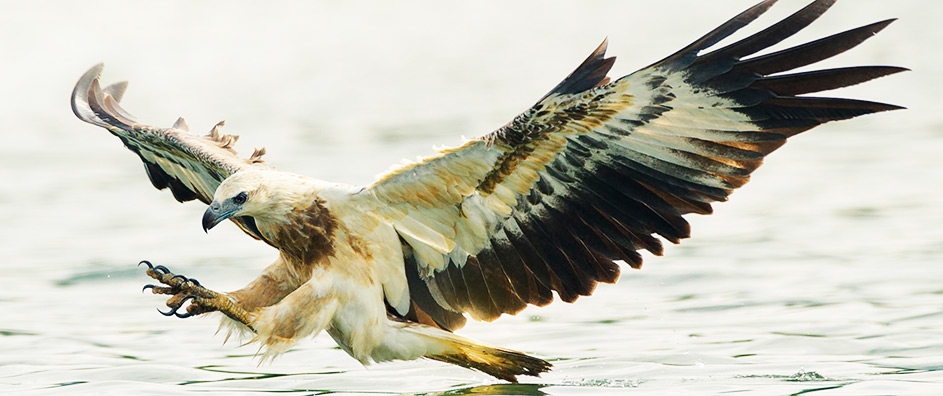
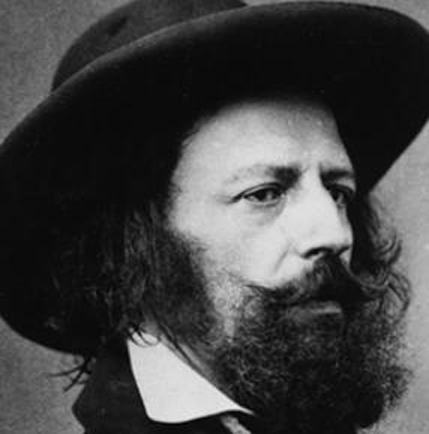

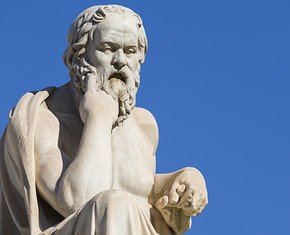
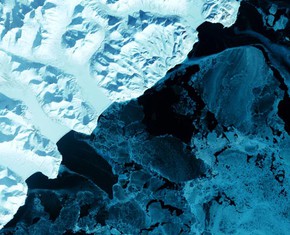










True, our attraction to and love for the divine qualities we see in other human beings, and -- especially -- in the Manifestations of God enables us to transcend Nature. However, let us not ...forget that Nature itself also reflects those qualities if we only look deeply enough for them. Modern science is discovering the harmony, unity in diversity and mutual aid that permeates all ecosystems, a lesson we humans would do well to learn from.
'Your voice is as sweet as your feathers are fine': Master Reynard
With apologies to Lord Tennyson (1809-1892) and the truth about my age:
‘Ah! What shall I be at 60 should nature keep me alive if I find the world so bitter when I am but 59?
Poet laureate for nigh on two generations, Tennyson, was my first choice as I roamed China for a decade declaiming English poetry in an endeavor to disprove what most consider impossible: an artificial language, in translation to boot, ...can match the mother tongue vis-a-vis poetry and humor.
However off-theme that may be, a couple of years before his passing (in the same year that Baha'u'llah ascended) at the zenith of his sagacity Baron Tennyson let loose his true feelings about the Lord :
http://www.sparknotes.com/poetry/tennyson/section10.rhtml
CROSSING THE BAR Alfred Lord Tennyson
Sunset and evening star,
And one clear call for me!
And may there be no moaning of the bar,
When I put out to sea,
But such a tide as moving seems asleep,
Too full for sound and foam,
When that which drew from out the boundless deep
Turns again home.
Twilight and evening bell,
And after that the dark!
And may there be no sadness of farewell,
When I embark;
For tho’ from out our bourne of Time and Place
The flood may bear me far,
I hope to see my Pilot face to face
When I have crost the bar.
TRANS LA SABLO-BAR’ (Sankta Kanto) El la angla tradukis ǔaogo
Vidu. 'La Revuo' 1913 – 1914 p.562
Planed’ eĉ sun-subir’!
Por mi senduba vok’!
Ne estu muĝo ĉe la sablo-bar’
Je mia ekvojaĝ’.
Sed kvazaǔ-dorme-mova tajda flu’
Sen bruo kaj sen ŝaǔm’,
Por porti la veninton el profund’
Ree al hejm’
Krepuska sonoril’!
Kaj poste la mal-lum’!
Kaj manka estu adiaǔ-malĝoj’
Je mia ir’.
Ĉar kvankam tra ĉiela senlimec’
Forportos min la mar’,
Rigardos la Piloton en vizaĝon
Mi – trans la sablo-bar’!
Beautifully said of the divine wisdom, that is the view point of Singularity or GOD where everything is the same and beautiful. All these distinctions we make of good and bad are for duality that we dwell in.
Love,
Sridattadev.
We can easily transcend our lower level human nature which is composed of hate, lust, greed, fear, anger, jealousy, misery, pride with our higher level spiritual nurture which is composed of love, compassion, peace, equanimity and righteousness. It's our choice to make either to descend to the lower level of natural existence or ascend to the higher level of spiritual enlightenment.
Love,
Sridattadev.
We can transcend hate with love
We can transcend fear with faith
We can transcend despair with hope
We can transcend ignorance with knowledge
We can transcend darkness with enlightenment
Love,
Sridattadev.